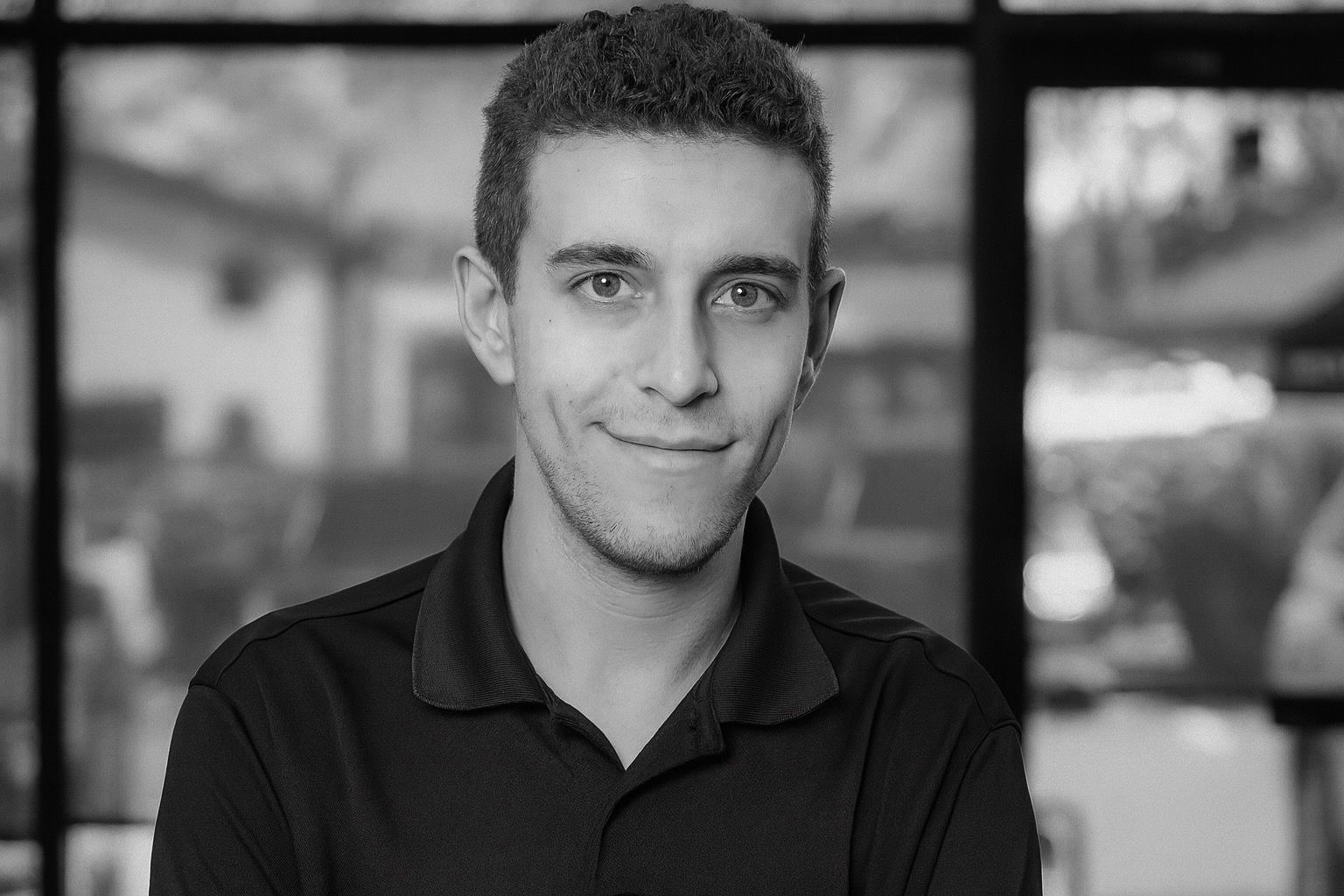- American chess star dead at 29: Grandmaster Daniel Naroditsky was found dead at his home in Charlotte, NC, with police probing his sudden passing as a possible suicide or overdosetheguardian.com. The shock death has devastated the fast-growing online chess community he helped build1 .
- Cheating claims & mental toll: In the months before his death, Naroditsky faced repeated, unproven cheating accusations from former world champion Vladimir Kramnikmoneycontrol.com. Naroditsky appeared visibly distressed in his final livestream, describing how the allegations “literally… [took] a life,” as one fellow grandmaster put itmoneycontrol.com. An expert analysis found no evidence that Naroditsky ever cheated2 .
- FIDE launches inquiry: The International Chess Federation (FIDE) announced it is formally investigating all of Kramnik’s public statements about Naroditsky, before and after the tragedyfide.com. FIDE President Arkady Dvorkovich warned that chess debates had crossed “beyond the boundaries of acceptable” into harassment and bullying, and vowed to take action to uphold fairness and respectfide.com3 .
- Kramnik denies wrongdoing: Kramnik expressed condolences but vehemently denies any blame for Naroditsky’s deaththeguardian.com. He claims he merely sought a review of Naroditsky’s play “with a significant amount of evidence”theguardian.com – evidence refuted by independent experts – and is threatening legal action against those “falsely blaming” himtheguardian.com4 .
- Community backlash & calls for reform: Top players and influencers have condemned Kramnik’s conduct as “horrible”reuters.com and unacceptable, noting the immense stress his crusade placed on Naroditskyreuters.com. Magnus Carlsen and Hikaru Nakamura blasted the bullying behavior, while FIDE’s CEO admitted Kramnik’s approach “simply can’t be accepted”theguardian.com. The scandal has intensified calls for stricter anti-harassment rules in chess as the game grapples with a boom in online play – and the dark side of cheating accusationstheguardian.com5 .
A Rising Star’s Tragic End Rocks Chess
The chess world has been left reeling after the untimely death of Daniel “Danya” Naroditsky, one of America’s most beloved grandmasters. The 29-year-old was found unresponsive at home on October 19 and pronounced dead by medicstheguardian.com. Charlotte police say they are investigating the case as a “Death/suicide/overdose” incidenttheguardian.com, though no official cause has been confirmed. Friends Oleksandr Bortnyk and Peter Giannatos discovered Naroditsky after he stopped answering callstheguardian.com. The Stanford-educated prodigy had amassed hundreds of thousands of followers on Twitch and YouTube by making chess entertaining and accessibletheguardian.com. His shock passing has plunged the online chess community into mourning – and searching for answers6 .
Naroditsky’s death might have remained a private tragedy if not for the firestorm of controversy surrounding it. In the year leading up to his death, Naroditsky had been the target of persistent cheating allegations from Russian legend Vladimir Kramnik, a former world chess championmoneycontrol.com. Kramnik repeatedly insinuated that Naroditsky’s near-perfect moves in online games indicated foul play – never outright accusing him, but constantly “just asking questions” that cast doubt on Danya’s integritymoneycontrol.com. These claims greatly troubled Naroditsky, who openly spoke of the toll the suspicions took on his mental health in what turned out to be his final Twitch streampeople.comopb.org. In that Oct. 18 broadcast (since deleted), a visibly agitated Naroditsky lamented that having influential peers consider him a cheater would mean “the complete failure of literally everything… my reason for waking up in the morning”opb.orgopb.org. Tragically, he signed off that stream hoping “this had never happened,” just one day before he was gone6 .
Cheating Allegations and Community Outrage
Kramnik’s campaign against Naroditsky has exposed deep fissures in the chess communitynewsofisrael.com. The former world champion, famed for his classical over-the-board triumphs, has in recent years become notorious online for his crusade against suspected cheaters. “The world of chess is no stranger to intense rivalries, but [this feud] has exposed deep fissures within the community,” one analysis observednewsofisrael.com. Naroditsky’s supporters note that no concrete evidence was ever presented, yet the accusations unleashed waves of speculation and trolling that deeply hurt his reputationnewsofisrael.commoneycontrol.com. “He has literally taken a life,” Indian grandmaster Nihal Sarin wrote of Kramnik’s relentless insinuationsmoneycontrol.com. Sarin, who played Naroditsky in the American’s final online match, blamed the “completely unacceptable” harassment for pushing Danya over the edge7 .
Other prominent voices echoed the outrage. Five-time world champion Magnus Carlsen condemned Kramnik’s treatment of Naroditsky as “horrible”reuters.com, and popular streamer Nemo Zhou called the situation “unacceptable” while urging FIDE to step inreuters.com. U.S. grandmaster Hikaru Nakamura (world #2) delivered an expletive-laden rebuke of Kramnik’s behavior on streamreuters.com. The sentiment was clear: a line had been crossed. Even FIDE CEO Emil Sutovsky – initially cautious – admitted, “The way Kramnik approaches it simply can’t be accepted”theguardian.com. Many pointed out the bitter irony that these unfounded cheating witch-hunts are damaging the game’s spirit more than cheating itself.
Indeed, chess insiders say this tragedy highlights a toxic side of competitive chess in the digital eramoneycontrol.com. Online chess has exploded in popularity thanks to the pandemic boom and Netflix’s Queen’s Gambit, but with it have come cheating scandals and social media pile-onsmoneycontrol.com. The Naroditsky case is an extreme example of how unchecked public accusations can ruin lives. As one cheating-detection expert, Prof. Kenneth Regan, found, there was zero evidence Naroditsky ever cheatedmoneycontrol.com – yet the cloud of suspicion was enough to inflict unbearable stress. “Discussions can turn into harassment, bullying, and personal attacks,” FIDE’s president warned in response, noting that debates have “moved beyond the boundaries of acceptable” and are now threatening players’ well-beingfide.com3 .
FIDE Acts: Inquiry and Calls for Accountability
Facing an outcry, the World Chess Federation (FIDE) has moved swiftly. On October 22, FIDE President Arkady Dvorkovich released a formal statement acknowledging the harm done by toxic debates and announcing an investigation into Kramnik’s conductfide.com. “Human life and dignity… must always come first,” Dvorkovich wrote, stressing that even a champion of Kramnik’s stature bears a responsibility to uphold “fairness and respect” in the communitytheguardian.com. He confirmed that “all relevant public statements” Kramnik made regarding Naroditsky – both before and after the tragic death – will be referred to FIDE’s Ethics and Disciplinary Commission for independent reviewfide.com. In other words, every tweet, video or post where Kramnik insinuated cheating is now evidence in a potential disciplinary case.
Dvorkovich vowed that “FIDE will take appropriate action in any case where a lack of respect, public harassment, or bullying is observed” in chesspeople.compeople.com. Although it’s rare for FIDE to scrutinize a former World Champion in this way, the federation made clear that nobody is above the sport’s code of ethicsfide.comfide.com. The investigation could lead to sanctions on Kramnik – anything from a reprimand or social media ban to suspension from official events. FIDE also expressed condolences to Naroditsky’s family and announced it will honor his legacy with a special annual award celebrating his contributions as a player, coach, and streamertheguardian.comreuters.com. Many in the chess world welcomed these steps as long overdue. “It’s past time,” said one commentator, noting Kramnik has “accused multiple players of online cheating in recent years” with impunityreuters.com8 .
Kramnik’s Defense: “Not My Fault”
For his part, Vladimir Kramnik has broken his silence only to defend himself defiantly. In a lengthy statement posted on X (formerly Twitter), the 50-year-old offered condolences to Naroditsky’s family but blasted what he called an “unprecedentedly cynical and unlawful campaign of harassment” against him in the aftermaththeguardian.comtheguardian.com. Kramnik insisted he never personally bullied Naroditsky, claiming, “I have not… ever made personal insults towards him”reuters.com. According to Kramnik, he was actually trying to help – he says he “noticed” Naroditsky’s “obvious health issues” on a video the day before and publicly urged someone to get Danya helptheguardian.com. Any attempt to link him to the tragedy, Kramnik argued, “cross[es] all boundaries of basic human morality”9 .
Kramnik maintains that his concerns about possible cheating were valid and that officials ignored what he describes as a “significant amount of evidence”theguardian.com. (Notably, he has yet to present any hard evidence publicly, and independent checks turned up nonemoneycontrol.com.) He says he’s ready to hand over his materials to “any relevant authority”theguardian.com and welcomes an investigation into Naroditsky’s death, hinting he has “important non-public information” to sharetheguardian.com. In fact, Kramnik appears to be doubling down on conspiracy-laden claims – alleging unspecified efforts to “conceal the real truth” about the tragedyopb.org. He also declared himself in “good… condition” and “under no circumstances” planning to harm himselftheguardian.com – a remark some interpreted as Kramnik fearing retaliation or setup.
Crucially, Kramnik is threatening legal action against those he says are defaming him. He claims he and his family have received threats due to “false accusations” blaming him for Naroditsky’s fatetheguardian.com. His lawyers are reportedly preparing civil and even criminal suits to hold “#chessmafia… accountable” – a term he used while railing against top chess figures on social mediaopb.orgopb.org. In one ranting post Wednesday, Kramnik wrote, “From prominent players, you all know their names, but will not disclose it in public… #chessmafia must be held accountable”, accusing leading chess insiders of ganging up on himopb.org. He demanded FIDE’s president clarify what, if anything, he said that was wrong: “What public statement after the death of Daniel was incorrect? … I demand clarification… I have not bullied [him].”reuters.com. Kramnik also urged FIDE to investigate the “bullying and damaging statements” against him, complaining that multiple chess community members have leveled “murder threats” his way (though he provided no specifics)reuters.com10 .
The ex-champion’s combative response has won him little sympathy. To many, it underscores the very issue at hand: instead of any introspection or apology, Kramnik is fighting back aggressively, portraying himself as the true victim. This stance has only further alienated peers. “He needs to pay for what he’s doing,” Nihal Sarin said of Kramnik on social media, calling for consequencesreuters.com. Fellow grandmaster Anish Giri dryly remarked that the situation was “sad all around, and [Kramnik] isn’t helping himself.” The chess world is now anxiously awaiting the outcome of FIDE’s inquiry – and whether Kramnik will face formal sanctions for his conduct.
A Pattern of Accusations – and a Turning Point for Chess?
This is not the first time Vladimir Kramnik has courted controversy with cheating accusations. During the online chess boom in 2020, Kramnik made so many public insinuations of cheating that Chess.com banned him from posting on its platform, citing his “baseless and damaging” claimstheguardian.com. He has targeted numerous younger players over the past few years, earning a reputation as something of a self-appointed anti-cheating vigilante. Czech grandmaster David Navara even revealed that Kramnik’s public accusations against him drove Navara to “consider suicide,” before Kramnik’s blog posts were removedwashingtontimes.com. Chess insiders recount that several masters – especially those who beat Kramnik online – found themselves subtly smeared by the Russian legend’s hints that they used computer assistance. As ts2.tech reported, other players “burnt by his allegations… have shared stories of distress and defamation,” fueling debate on how far such claims should be allowed to spread11 .
The Naroditsky tragedy has, in the eyes of many, brought this long-simmering issue to a boiling point. The chess community is now asking: how can genuine cheating be combated without wrecking innocent lives or devolving into witch hunts? The timing is notable – just last year, chess was rocked by another cheating scandal of a very different nature, when world champion Magnus Carlsen accused 19-year-old Hans Niemann of cheating during a tournament match. That saga, involving wild rumors of high-tech cheating devices and a $100 million defamation lawsuit, ultimately ended in a legal settlementtheguardian.comtheguardian.com. But it showed how damaging a public cheating allegation can be, even for a rising talent who is later not proven guilty.
Now, Naroditsky’s case has underscored the human cost even more starkly. This was not just about ratings or prize money – it became about a young man’s dignity and mental health. Naroditsky’s mother Elena heartbreakingly shared that “there was nothing more important to Daniel than his name as a chess player”, describing how he played “more and more because he wanted to prove he wasn’t what he was accused of”timesofindia.indiatimes.comtimesofindia.indiatimes.com. He even postponed personal joys (a family visit and celebrating his birthday next month) to focus on clearing his nametimesofindia.indiatimes.com. Those plans have now been cruelly cut short, replaced by funeral arrangements. It’s a sobering reminder that behind every online handle or Elo rating is a human being – with a breaking point.
Towards a Culture of Respect and Support
As the dust settles, the chess world is left soul-searching. FIDE’s swift action and strong words suggest that change may be on the horizon. Dvorkovich’s statement emphasizes that champions must be ambassadors for the sport and that “integrity, respect, and humanity” must prevail over hostilityfide.comfide.com. Some are now calling for a clearer code of conduct covering social media behavior, to prevent unfounded public shaming of players. “The chess community… stands at a crossroads, defining its future competition’s integrity and respect,” as one commentary put itnewsofisrael.com. This could mean empowering official anti-cheating panels (rather than Twitter vigilantes) to handle accusations discreetly, and providing mental health resources for players dealing with public pressures.
Amid the controversy, many insist on remembering Daniel Naroditsky for his life, not just the manner of his death. Tributes have poured in celebrating Danya’s humor, teaching talent, and genuine love for the game. “He truly was adored,” said Chess.com’s Daniel Rensch, noting the community is struggling to fathom the lossmoneycontrol.com. Naroditsky’s family expressed hope he will be remembered for “the joy and inspiration he brought people every day”, rather than the hostility he enduredtheguardian.com. Fellow grandmasters have hailed him as “the best of us” and “a resource to the chess community”theguardian.com. In a touching gesture, FIDE’s planned Naroditsky Award will ensure his name lives on in the chess world for years to come12 .
The coming weeks will test whether the chess community can learn and heal from this saga. On one hand, there is grief and anger – but on the other, there is an opportunity to reaffirm what makes chess special. “Chess, a game of honor and intellect, now faces a moment of reflection,” wrote TS2.Tech, capturing the community’s moodnewsofisrael.com. If meaningful reforms emerge to curb toxicity and support players, Naroditsky’s legacy could include making the chess world a kinder place. As FIDE’s president said, human values must come first, even in the fiercest of competitionsfide.com13 .
In the end, the “chess cheating death” scandal – as some media have dubbed it – may mark a turning point. The chess boom of recent years has brought immense new energy into the game; now it must confront the challenges that came with it. The hope is that out of this tragedy will come a stronger ethos of empathy and justice in the chess community, so that the next Daniel Naroditsky is nurtured and celebrated – not driven to despair by the very game he loved.
Sources: The New York Times, FIDE Official Statement, Reuters, The Guardian, NBC News, People Magazine, NPR/OPB, Moneycontrolfide.comtheguardian.comtheguardian.commoneycontrol.commoneycontrol.comopb.org, TS2.Technewsofisrael.comnewsofisrael.com, and others.






